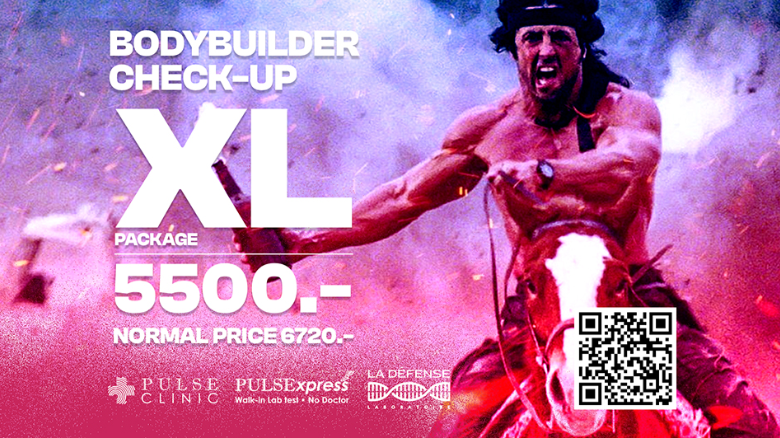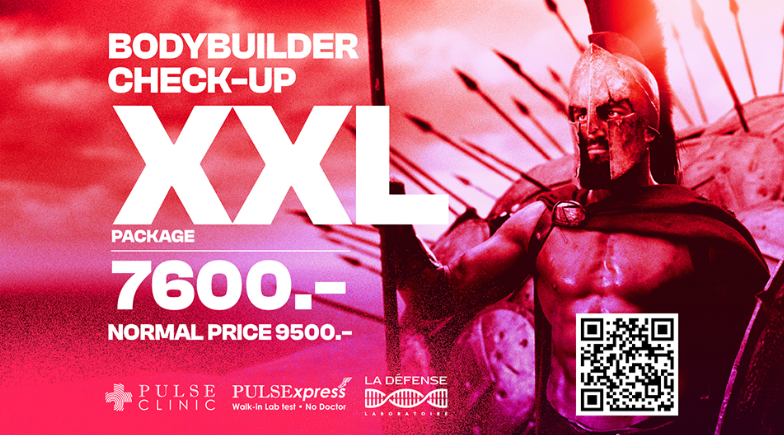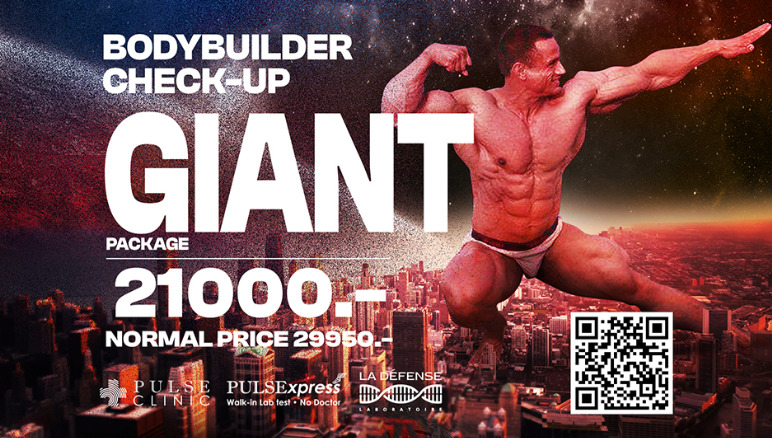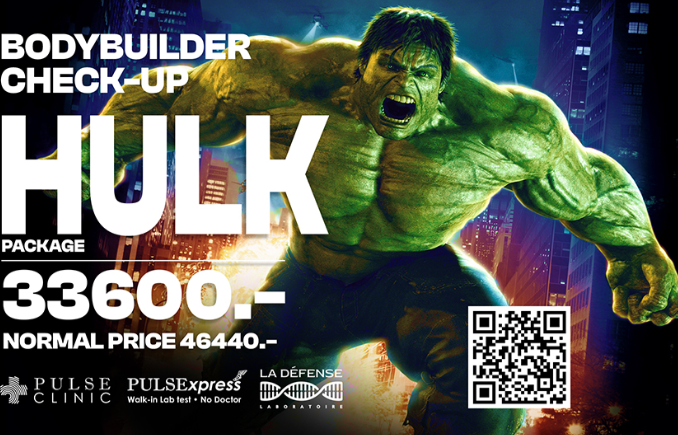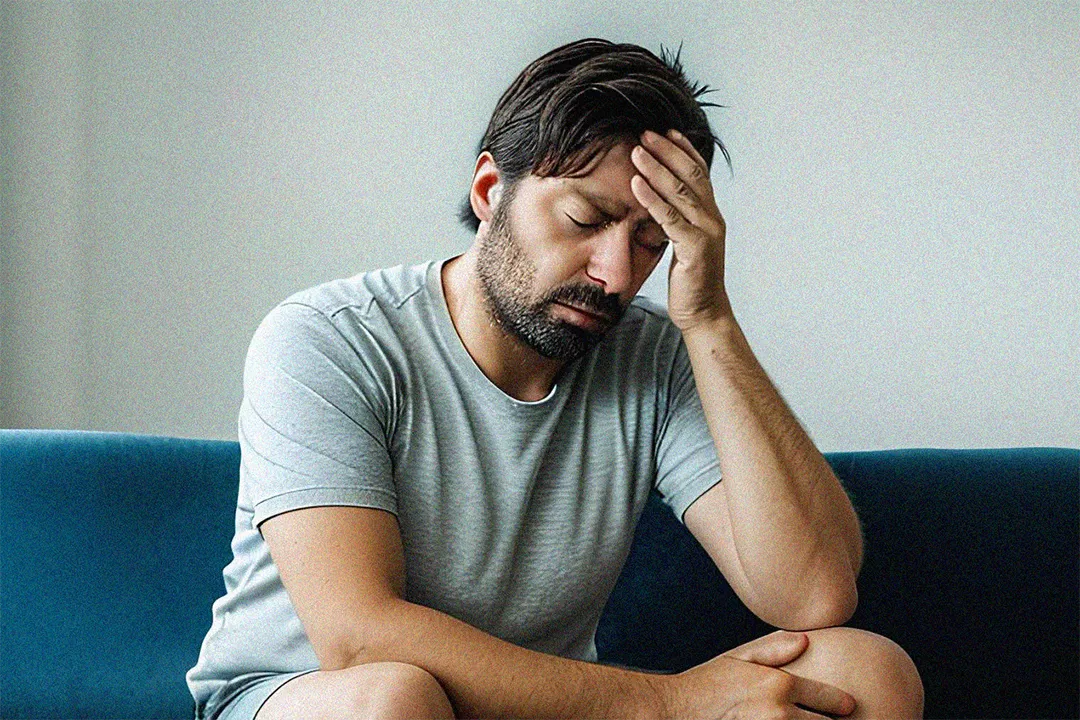Hormone Therapy for Men in Thailand (Bangkok, Pattaya, Phuket, Koh Samui and Chiang Mai)
1735
Get hormone therapy for men at PULSE Clinic – safe, effective, and tailored treatments to boost your health and well-being today!

Hormone Therapy for Men in Thailand (Bangkok, Pattaya, Phuket, Koh Samui, and Chiang Mai)
Testosterone is commonly linked to men’s sex drive, but it also plays a crucial role in mental health, bone and muscle mass, fat storage, and red blood cell production.
An imbalance in testosterone levels can impact both a man’s mental and physical health. Your doctor can quickly assess your testosterone levels with a simple blood test. Don’t let health concerns hold you back—hormonal imbalances in men are easily treatable!
Testosterone Replacement Therapy Pricing at PULSE Clinic
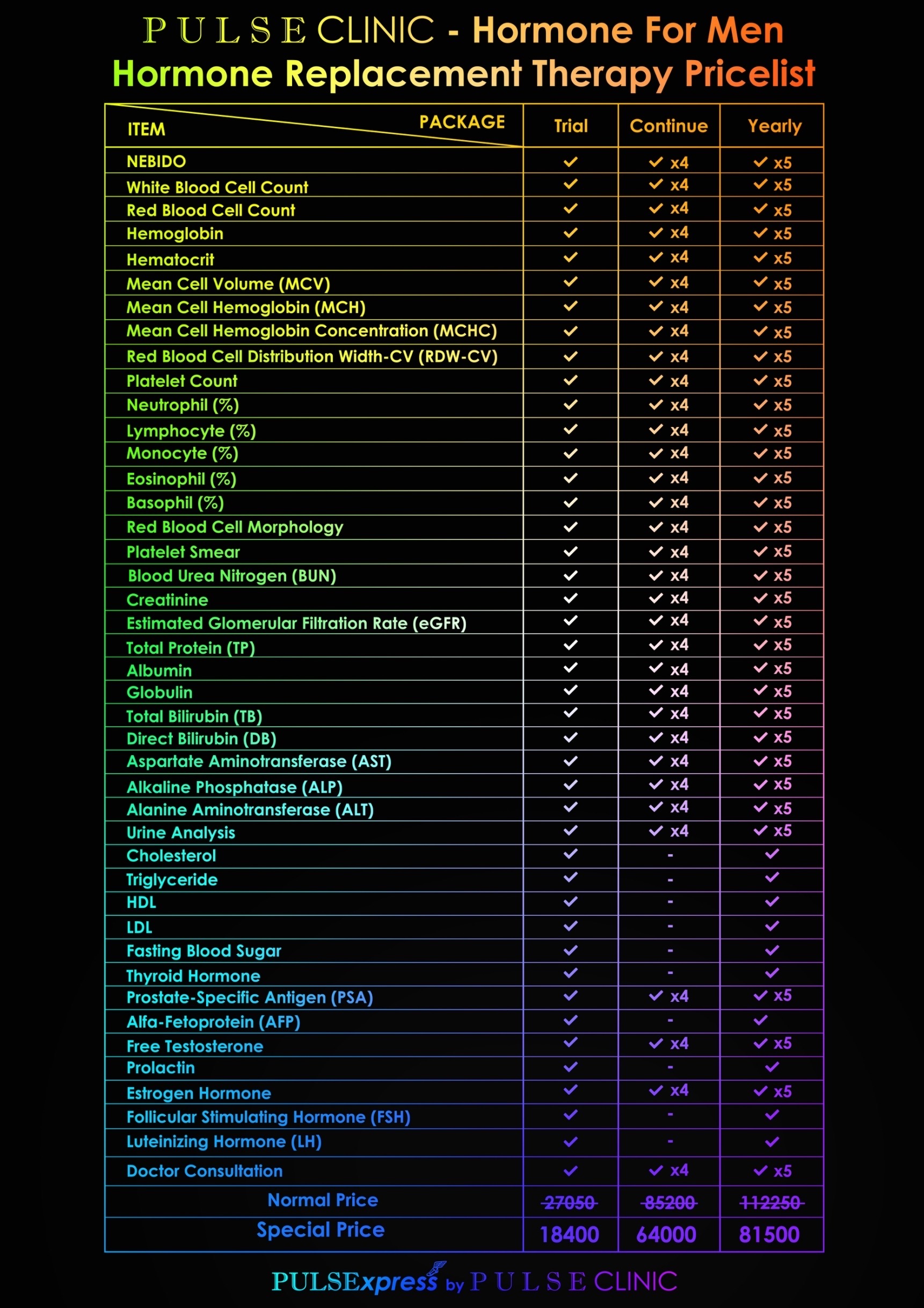
Level Up Your Health Today! Optimize your performance with our Bodybuilder Check-Up Packages. Book now!
Contact us at info.bkk@pulse-clinic.com or chat on your preferred platform:
![]() +66 65 237 1936
+66 65 237 1936  @PULSEClinic
@PULSEClinic ![]() PulseClinic
PulseClinic
Grow Your Muscle Service
| Grow Your Muscle Service | Price |
| Consultation | 800-1000 THB |
| Laboratory Testing Check-up for a bodybuilder | Package listed above |
| Hormones for Men | Please contact our staff |
| Medication | Please contact our staff |
Pain Relief and Muscle Care
| Pain Relief and Muscle Care | Price |
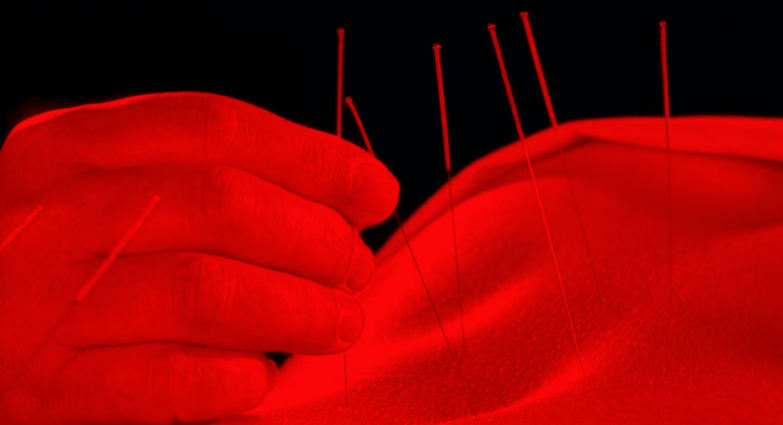 | Acupuncture to relieve muscle pain |
What is Testosterone?
Testosterone is the primary androgen responsible for developing male characteristics and is crucial for sperm production. In men, it helps maintain sex organs, muscle mass, red blood cell levels, bone density, a sense of well-being, and sexual and reproductive functions.
Testosterone levels are naturally higher in men than in women and are regulated by the hypothalamus and pituitary gland, which release hormones that stimulate testosterone production in the testicles. These levels are typically highest in the morning and decrease throughout the day. Issues with the testicles, hypothalamus, or pituitary gland can lead to low testosterone, known as male hypogonadism.
How Is Low Testosterone Treated?
Doctors treat low testosterone (male hypogonadism) with testosterone replacement therapy. There are different ways to do this, like:
- Testosterone gels: Apply them daily to clean, dry skin. Don’t rub them on your skin.
- Testosterone injections: Give them every 1-2 weeks or every 10 weeks for long-lasting testosterone. You can also inject them under your skin.
Before starting testosterone replacement therapy, you’ll need to get a prostate screening if you’ve had prostate cancer or a prostate lump that hasn’t been checked out. You’ll also need to get a prostate screening if you have breast cancer, heart failure that can’t be controlled, or sleep apnea that can’t be treated.
Testosterone Gel | Testosterone Injection | |
Absorption | Through skin | Direct to the bloodstream |
Application | Topical application | Intramuscular injection |
Dosage Consistency | May vary depending on factors like sweat, washing, and application site | More consistent, as there are fewer factors that could interfere with the absorption |
Side Effects | Lower risk of pain and soreness, gradual absorption | Pain, soreness at the injection site, potential for inconsistent levels |
Important Notes | More convenient and painless. However, it takes longer to reach the intended testosterone level and requires careful application, and waiting time | Faster absorption and the need to take the medication significantly less frequently. However, you might need to go to the clinic for an injection or handle the needle injection yourself. |
Side Effects from Testosterone Therapy
Testosterone replacement therapy can cause several side effects, including acne, oily skin, ankle swelling due to fluid retention, prostate stimulation leading to urinary issues, breast enlargement or tenderness, worsening sleep apnea, and smaller testicles. Skin irritation may occur with topical use. Laboratory abnormalities can include increased prostate-specific antigen (PSA), red blood cell count, and decreased sperm count, which can lead to infertility, particularly concerning younger individuals wishing to have biological children.
Testosterone therapy doesn’t solve the root cause of low testosterone. In fact, it can actually stop your testicles from working. So, you’ll need to keep taking the medication to keep your testosterone levels normal. If you stop taking testosterone, your body will have to figure out how to make testosterone on its own again. Learn more about post-cycle therapy (PCT) if you decide to stop using testosterone to help your body transition from testosterone supplements to natural testosterone.
Trust PULSE CLINIC to take care of your health like other 45000 people from over 130 countries. We provide discreet professional service with high privacy. Here to help, not to judge.
Post-Cycle Therapy Before Stopping Testosterone
Post-Cycle Therapy (PCT) is crucial for individuals who have completed a hormone or steroid cycle, as it helps restore natural testosterone production and reduce side effects like erectile dysfunction, muscle loss, low libido, and mood disorders.
Without PCT, the body’s natural testosterone levels can remain suppressed, resulting in long-term hormonal imbalances. PCT works by using Selective Estrogen Receptor Modulators (SERMs) and Aromatase Inhibitors (AIs) to regulate hormone levels. SERMs, such as Nolvadex and Clomid, stimulate the production of luteinizing hormone (LH) and follicle-stimulating hormone (FSH), while AIs prevent testosterone from converting into estrogen. This therapy supports the progress made during the cycle and helps restore normal hormonal balance.
Why Do I Need Regular Health Checks While Using Testosterone Therapy?
Regular blood tests are crucial when supplementing with testosterone to track changes in the body and ensure safety, particularly since anabolic steroids can negatively affect both physical and mental health if misused. A hormone profile helps detect imbalances and assess testosterone levels, which is essential for addressing low testosterone. Blood count tests evaluate the risk of blood clots, which can lead to serious cardiovascular issues. Inflammation tests monitor heart and circulatory health, while cholesterol tests assess heart function, as testosterone can influence cholesterol levels.
Additionally, kidney and liver function tests are vital to prevent organ damage caused by the medication. These comprehensive tests help maintain overall health during testosterone therapy, ensuring the therapy’s benefits are maximized. Your doctor can also address any health concerns to ensure the treatment is both safe and effective.
What Causes Low Testosterone?
As you age, your body naturally produces less testosterone, starting around your late 20s or early 30s. This gradual decline usually doesn’t cause any major issues, but a significant drop can lead to a decreased sex drive, difficulty achieving and maintaining erections, erectile dysfunction, low sperm count, sleep problems, muscle loss, and weight gain.
How Can I Know If I Have Low Testosterone
To figure out if you have low testosterone, you’ll need a blood test from a doctor. It’s possible you might need more than one test because things like what you eat, how active you are, when you take your medicine, and even your sleep schedule can affect your testosterone levels. If your testosterone levels are just a bit low, you might not need testosterone therapy. But if they’re really low, your doctor might do more tests before recommending treatment.
You should have a consultation with a doctor if you have these signs of low testosterone:
- Low sex drive and difficulty achieving or maintaining erections
- Fatigue, decreased muscle mass, and increased body fat
- Decreased bone mass can lead to osteoporosis
- Mood changes such as stress, irritability, low self-esteem, anxiety, dysphoria, and depression
- Smaller testicle and penis size
- Low blood counts
- Hair loss, balding
- Hot flashes (sudden warmth, heavy sweating, reddening of the skin, and night sweats)
However, having these symptoms doesn’t always mean you have low testosterone. You should get a proper test and consultation with a doctor before starting any treatment, as unnecessary use of testosterone can lead to more harm than benefit.
Common Symptoms of Low Testosterone
Symptoms of low testosterone can vary depending on age. Common signs include reduced sex drive, erectile dysfunction, hair loss, shrinking testicles, hot flashes, depression, memory problems, weight gain, enlarged breasts, decreased muscle strength, fatigue, and low energy.
These symptoms may also overlap with other health conditions, making it important to test for low testosterone. Treatment may involve addressing underlying issues to boost testosterone production.
In conclusion
Testosterone therapy can significantly improve a man's physical and mental well-being by restoring hormonal balance. Whether you're dealing with low testosterone due to age or other factors, it’s essential to consult a healthcare professional for proper testing and treatment. Regular monitoring through blood work and comprehensive health checks ensures that the therapy is safe and effective.
At PULSE Clinic, we offer specialized services tailored to your needs, including various bodybuilder check-up packages and muscle growth support.
Don’t let hormonal imbalances affect your quality of life—take control of your health and start your journey towards optimal performance today. Contact us for more information and to schedule a consultation.
Contact us at info.bkk@pulse-clinic.com or chat on your preferred platform:
Add us on Line and stay in touch.
Loading...
Clinic Locations
Loading...


